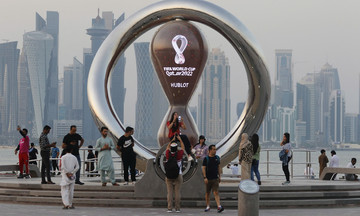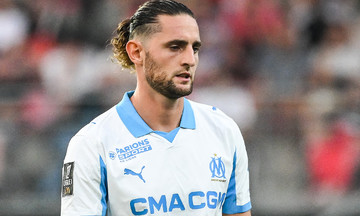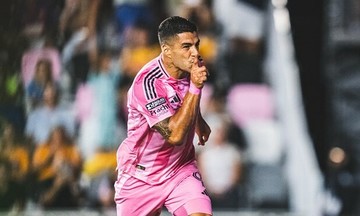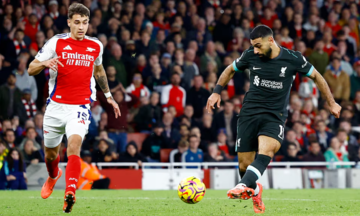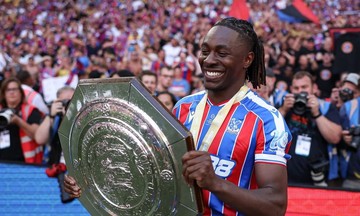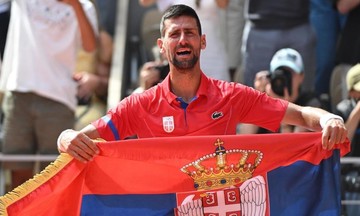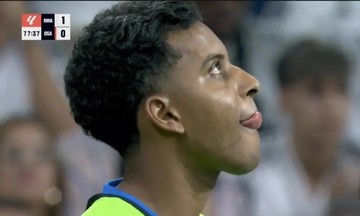Usyk's secret to maintaining peak performance at 38 isn't magic, but meticulous measurement. Every punch he absorbs in training is tracked via microsensors embedded in his mouthguard.
Blood samples are taken throughout his training to monitor fatigue, while his memory, sleep, and neurological stress are also recorded, analyzed, and adjusted. Usyk's training camp in Gandia, Spain, resembles a laboratory more than a gym.
"It is within this laboratory that a modern, model champion is being rebuilt for his next pursuit of glory. A champion seeking to become the undisputed ruler for the third time in boxing's four-belt era," commented the UK's Sport Mail.
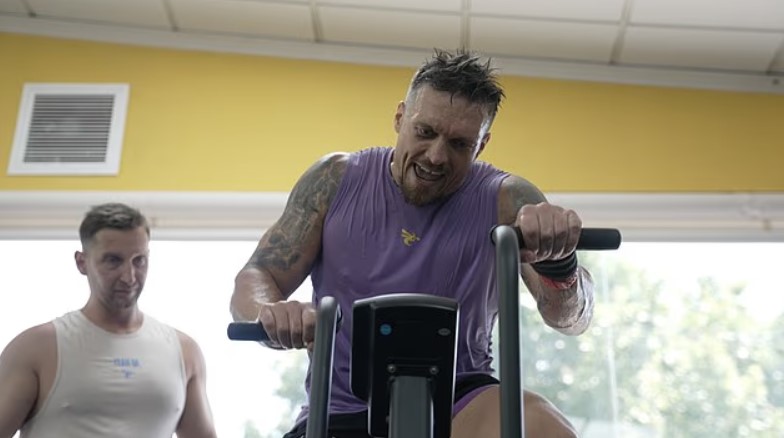 |
Oleksandr Usyk begins his morning training with a 60-minute run or bike ride. Photo: Sportmail |
Oleksandr Usyk begins his morning training with a 60-minute run or bike ride. Photo: Sportmail
Usyk's alarm rings at 5:30 every morning. He doesn't check his phone or sip coffee, but instead undergoes an orthostatic test, providing a comprehensive overview of his overnight cardiac recovery.
Nearby, his team gathers data from sensors that monitor the Ukrainian boxer's sleep. Only then does Usyk's day truly begin, with 60 minutes of low-intensity aerobic exercise, usually running or cycling, followed by calisthenics, and then breakfast.
Technical training or sparring takes place mid-morning, followed by recovery and preparation for the second training session in the evening. During the last 5 weeks of his training cycle, Usyk prioritizes sparring. 60% of his workload becomes fight simulation: high-intensity, high-performance, and closely monitored.
Jakub Chycki, Usyk's strength and conditioning coach, sounds less like a fitness expert and more like a performance scientist. He explained that every punch thrown during sparring is monitored by sensors in the mouthguard, measuring head acceleration. Blood samples are taken throughout training to assess biomarkers for fatigue, inflammation, and even minor concussions.
This method may explain why Usyk, nearing 40, continues to outperform peers and younger fighters who have long since begun to decline. "We monitor Usyk's sparring sessions and check for any minor concussions," Chycki said.
"We gather information on the number of punches taken during training and monitor his head acceleration using a monitoring system integrated into his mouthguard. We can then assess the impact of sparring on his working memory. At crucial times, we also take blood samples for biochemical and molecular testing. We then adjust the sparring intensity or the number of rounds he completes."
Cognitive training also plays a vital role in his preparation. Usyk is known for juggling and flipping coins, but this training camp goes beyond simple reflex exercises. The Ukrainian boxer also undergoes neurological exercises designed to improve what Chycki calls his "executive function"—essentially, his ability to plan, remember, adapt, and solve problems in real time.
This is one of Usyk's greatest strengths in the ring. "We do a lot of cognitive exercises," Chycki said. "It's not just reflexes we're training. Of course, those are important, but the brain's executive function is even more crucial. That's his working memory. In boxing, working memory is critical for learning and executing techniques, as well as for strategic thinking during a match."
The coach continued his analysis: "Boxing training can contribute to muscle memory, but it's essential to develop Usyk's conscious awareness and strategic decision-making abilities. When he performs these exercises, they boost key brain proteins that are vital for learning, memory, and neuron growth. This type of training improves his attention and focus while also providing therapy for the minor concussions he sustains during sparring."
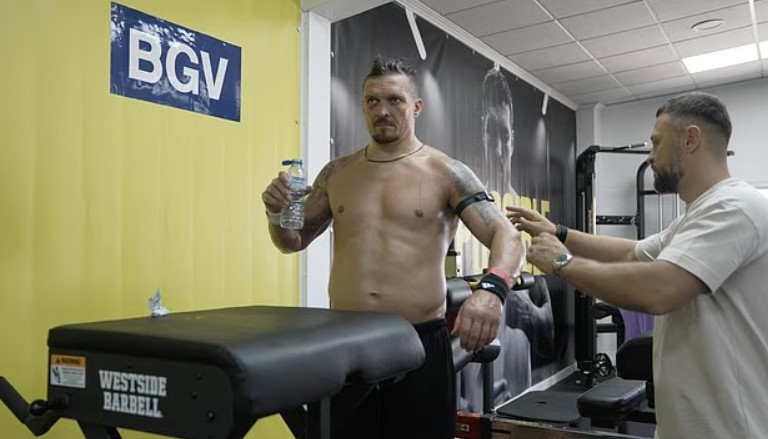 |
Blood is drawn to monitor Oleksandr Usyk's fatigue, memory, sleep, and cognitive stress, which are all recorded, analyzed, and adjusted. Photo: Sportmail |
Blood is drawn to monitor Oleksandr Usyk's fatigue, memory, sleep, and cognitive stress, which are all recorded, analyzed, and adjusted. Photo: Sportmail
Wednesdays are dedicated to swimming. The 38-year-old boxer has long considered aquatic training an effective method for building endurance. He now swims over 90 minutes per week, varying the pace to simulate the demands of a fight. He also practices breath-holding—sometimes underwater—which may seem odd for a boxer, but it's rooted in science. Breath control is linked to improved lung capacity and mental resilience under pressure.
After sparring days, Usyk takes ice baths. The facilities downstairs in his gym include a cold plunge pool set at 8 to 10 degrees Celsius and a dry sauna next door. Usyk and his sparring partner Daniel Lapin use it three times a week, especially after intense training sessions.
"Usyk takes ice baths three times a week. He uses the ice bath after sparring sessions, as he'll spar in the morning and then do a strength or cognitive workout in the evening," Chycki said. "The ice bath is between 8 and 10 degrees, and Usyk stays in for about 3 to 5 minutes. It's the optimal environment for improving recovery. But it's also a good time to measure fatigue. When we reach the training phase where he's completing his highest workload, we'll take his blood before and after the ice bath. We can then evaluate how he peaks."
Recovery monitoring doesn't stop at ice baths. Eye scans, sleep data, hormone panels, and continuous heart rate variability are all used to inform decisions throughout Usyk's training cycle.
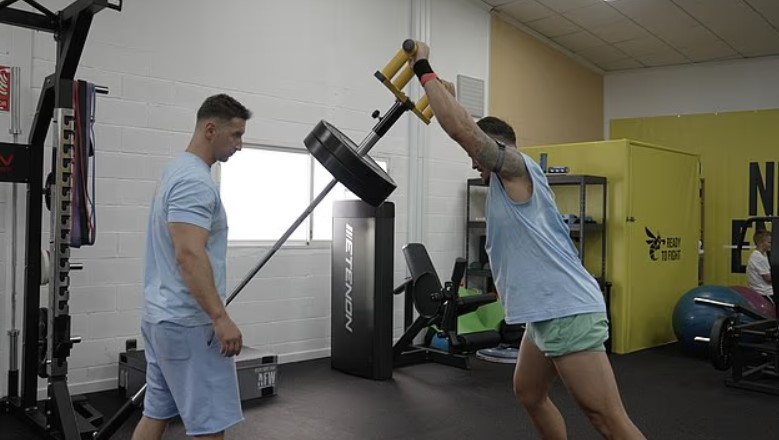 |
60% of his total training volume is fight simulation—high-stress, high-output, and closely monitored. Photo: Sportmail |
60% of his total training volume is fight simulation—high-stress, high-output, and closely monitored. Photo: Sportmail
Outside the intense training hours, Usyk can relax with the basketball hoop and ping-pong table downstairs. There's a full boxing ring upstairs, cardio machines lining one wall, a strength area along another, and a striking mural of the Ukrainian flag greets him upon entry.
On another wall, Usyk has spray-painted messages to each team member—inside jokes, funny drawings, and cryptic notes that no outsider could decipher.
A steel frame holds his punching bag, and beside it is a prayer. Every training session, without exception, begins and ends with Usyk standing before it, reciting the prayer, making the sign of the cross, and closing his eyes.
Life inside the training camp isn't all discipline and data. Usyk's two sons visited during one session, climbing into the ring and wrestling with each other to the Ukrainian boxer's amusement. He watched, laughed, and even offered them advice.
During their downtime, Usyk and the team often walk into town to the local arcade. Inside, they compete on the video game machines, often late into the night. Usyk and Sergey Lapin, the training camp director, are said to be tough to beat.
"That balance—between science and spirit, persistence and laughter—is what defines Usyk," Sport Mail commented. "Age is inevitable. Decline is not. Nobody knows how long he can hold off the younger, heavier, more explosive challengers. But from the quiet intensity of that converted garage in Spain, one thing is clear: time has not yet caught up with Usyk."
Hong Duy (Sport Mail)



